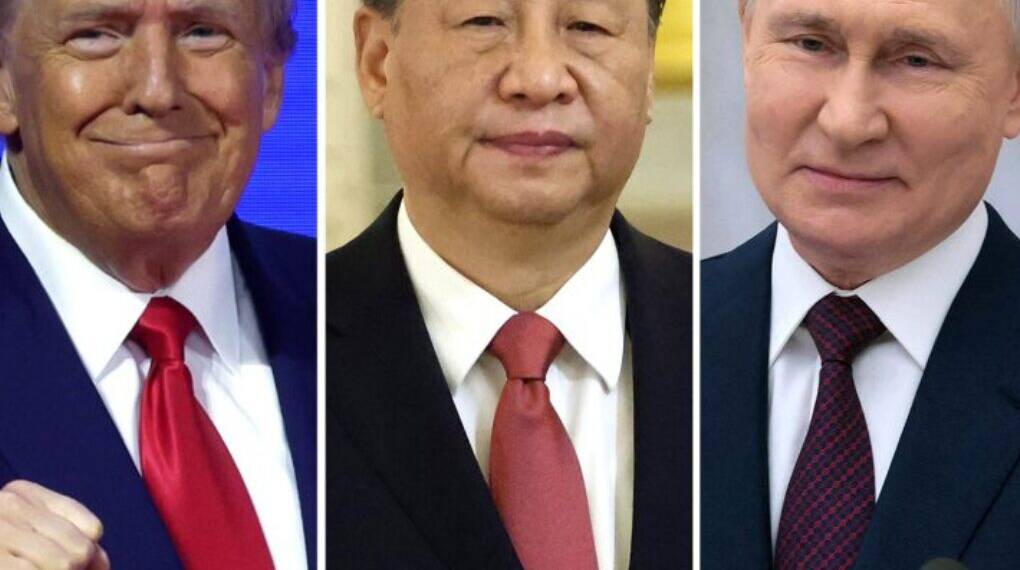In a striking escalation of rhetoric, U.S. Ambassador to NATO Matthew Whitaker has accused China of waging a proxy war through Russia in Ukraine, directly funding the conflict and seeking to distract the West from broader strategic threats.
Speaking on July 24, 2025, Whitaker’s remarks mark the strongest U.S. statement against Beijing’s role in the ongoing war, shifting focus from trade disputes to geopolitical accusations with significant implications.
A New Level of Accusation
Whitaker’s comments, delivered during a NATO briefing, represent a pivotal moment in U.S.-China relations. “China believes it is waging a proxy war through Russia,” he stated. “They want us tied up in this conflict so we can’t focus on other threats. But that won’t happen.
China must be held accountable for subsidizing the killings taking place on the battlefield in Ukraine.” This is the first time a U.S. official of such stature has explicitly labeled Russia as a Chinese proxy while accusing Beijing of financially supporting the violence in Ukraine.
The ambassador’s remarks signal a shift in Washington’s approach, moving beyond economic measures like tariffs to directly confronting China’s alleged complicity in the war. By framing Russia as a tool of Chinese strategy, the U.S. is drawing a clear line between Beijing’s actions and the human toll in Ukraine.
The Proxy War Claim
The accusation that China is using Russia as a proxy aligns with growing concerns among Western officials about Beijing’s role in sustaining Russia’s war effort. While China has officially maintained a neutral stance, its economic ties with Russia have deepened since the conflict began.
Trade between the two nations has surged, with China providing critical goods—ranging from dual-use technologies to raw materials—that have helped Russia evade Western sanctions and sustain its military operations.
Whitaker’s statement suggests that the U.S. views China’s support as more than opportunistic trade. By describing it as a deliberate strategy to keep the West preoccupied, he implies a coordinated effort to divert NATO’s focus away from other global challenges, such as China’s actions in the Indo-Pacific. This framing portrays Beijing as a central player in the Ukraine conflict, rather than merely a bystander.
Implications for U.S.-China Relations
The ambassador’s remarks are likely to intensify tensions between Washington and Beijing. China has repeatedly denied providing direct military aid to Russia, and its foreign ministry is expected to issue a sharp rebuttal to Whitaker’s claims.
However, the accusation of “subsidizing killings” could pave the way for new U.S. sanctions targeting Chinese entities involved in trade with Russia’s defense sector.
The statement also raises questions about NATO’s next steps. If the U.S. pushes for collective action to hold China accountable, it could strain alliances with countries hesitant to confront Beijing directly. European nations, heavily reliant on Chinese trade, may resist measures that risk economic retaliation.
Broader Geopolitical Context
Whitaker’s comments come at a time of heightened global competition. The U.S. has increasingly viewed China as its primary strategic rival, with concerns ranging from Taiwan to technological dominance. By tying China to the Ukraine war, the U.S. is attempting to rally international support for a tougher stance against Beijing’s global influence.
Meanwhile, Russia’s reliance on China has grown as Western sanctions have isolated its economy. This dynamic strengthens the perception of Russia as a junior partner in a broader Sino-Russian alignment, a relationship that Whitaker’s remarks suggest the U.S. is determined to disrupt.
What’s Next?
The U.S. accusation opens a new front in the geopolitical struggle surrounding Ukraine. Holding China accountable, as Whitaker demands, could involve diplomatic pressure, expanded sanctions, or efforts to expose Chinese financial networks supporting Russia. However, any escalation risks are pushing Beijing and Moscow closer together, potentially deepening their strategic partnership.
As the war in Ukraine grinds on, the U.S. is signaling that it will not allow China to operate in the shadows. Whitaker’s blunt words underscore a growing resolve to confront Beijing’s role, even as the path to accountability remains fraught with challenges.







